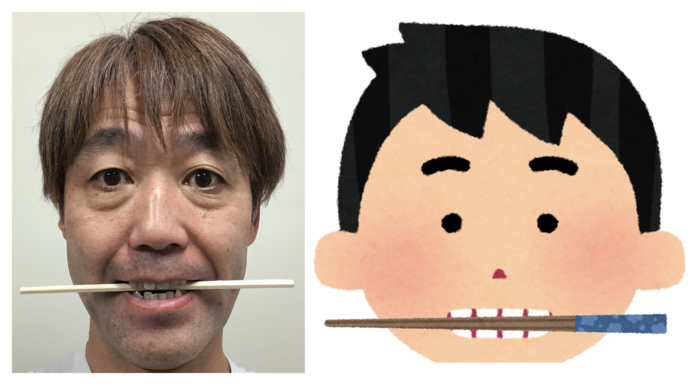Training individuals to inhibit imitation of others increases empathy and allows them to recognize facial expressions in others regardless of their situations.

Credit: Masaki O. Abe
Training individuals to inhibit imitation of others increases empathy and allows them to recognize facial expressions in others regardless of their situations.
When friends and family approach us with good or bad news, we are able to empathise with them — put ourselves in their shoes and feel what they are feeling. Some part of this ability to empathise is associated with the ability to imitate the expressions of people we try to empathise with and understand. Thus a question arises: how is empathy with and understanding others affected when this mimicry is prevented?
A recent study by Naoyoshi Matsuda and Masaki O. Abe at Hokkaido University explored the effects of imitation-inhibition training on the recognition of emotional states in others. Their work, published in the journal Cognitive Studies: Bulletin of the Japanese Cognitive Science Society, shows that imitation-inhibition contributes to the ability to recognize others’ emotional states quickly and accurately.
“Imitation-inhibition training is a type of training that focuses on making people suppress automatic imitative tendencies. This training has been shown to enhance the ability to distinguish between oneself and others, as well as increase the ability to empathise. However, until our study, its effects on the speed and accuracy of the recognition of facial expressions in others had not been investigated,” said Abe, corresponding author of the study.
A group of nine women and forty-one men were split into two groups, one of which was given imitation-inhibition training. This consisted of placing their hand on a mouse and pressing down on both buttons; when presented with an image of the index finger raised, they had to lift the middle finger, and vice versa. The group without imitation-inhibition training (control training, right) had to lift their index finger when presented with the number 1 and the middle finger when presented with 2.
The Facial Expression Recognition (FER) test was then used to evaluate their speed and accuracy in recognising five different facial expressions: happiness, surprise, disgust, anger, and sadness. During this test, participants were made to hold chopsticks in their mouths, which inhibited imitation of the expressions (restricted block). The performance of the restricted block was compared to that of an unrestricted block in which there was no constraint on the participants’ face.
“As in previous studies, the participants who had undergone imitation-inhibition training increased self-reported empathy,” explained Abe. “Interestingly, the group which did not have imitation-inhibition training was slower to identify the facial recognitions in the restricted block because of the interference of face mimicry. However, the group which had imitation-inhibition training did not have such a delay. It suggests that imitation-inhibition training allows for a similar level of recognition of others’ emotional states, regardless of discrepancies between the condition of self and others.“
The interpersonal reactivity index, a measure of empathy, increased in the group that underwent training, but remained unchanged in the one that did not — a clear indication that the training was responsible for the change.
Abe concluded, “We experimentally demonstrated that it is important to clearly distinguish between self and others’ situations—and to understand others’ situations independently of one’s own situation—in order to understand others and communicate with them.” Future research will address the effect of imitation-inhibition training on the other social cognitions such as understanding the intentions of others, and will also investigate the effects not only on the behavioral level, but also on the neural level.
DOI
10.11225/cs.2022.048
Method of Research
Experimental study
Subject of Research
People
Article Title
Imitation inhibition and facial expression recognition: Imitation-inhibition training inhibits the impact of interference with facial mimicry




